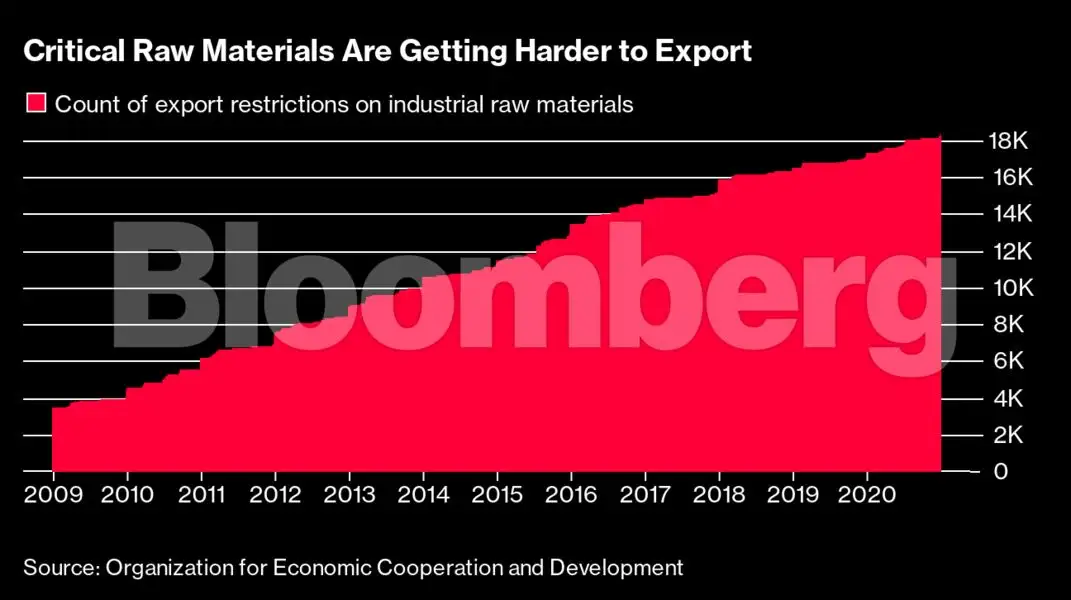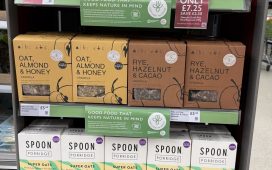The restrictions — most frequently taxes, but also quantitative limits — have increased more than five-fold in the last decade to a point where 10% of the global value of exports is subject to at least one measure, the OECD said.
 Bloomberg
BloombergChina, India, Argentina, Russia, Vietnam and Kazakhstan are the top six in terms of new curbs in the last decade. Those are also among the countries many of the OECD’s members depend on for supply, the organisation said. “The research so far suggests that export restrictions may be playing a non-trivial role in international markets for critical raw materials, affecting availability and prices,” researchers Przemyslaw Kowalski and Clarisse Legendre said. “Taking into account OECD dependencies on relevant imports described in this paper, this situation warrants scrutiny.”
 Bloomberg
BloombergThe findings come as the OECD also said a significant scaling up of production and trade in the materials is needed to meet an expected four-to-six-fold increase in demand for the green transition.
Lithium, rare earth elements, chromium, arsenic, cobalt, titanium, selenium and magnesium saw the largest increase in production in recent years.
“While the production and trade of most critical raw materials has expanded rapidly over the last ten years, growth is not keeping pace with projected demand for the metals and minerals needed to transform the global economy,” the OECD said.










